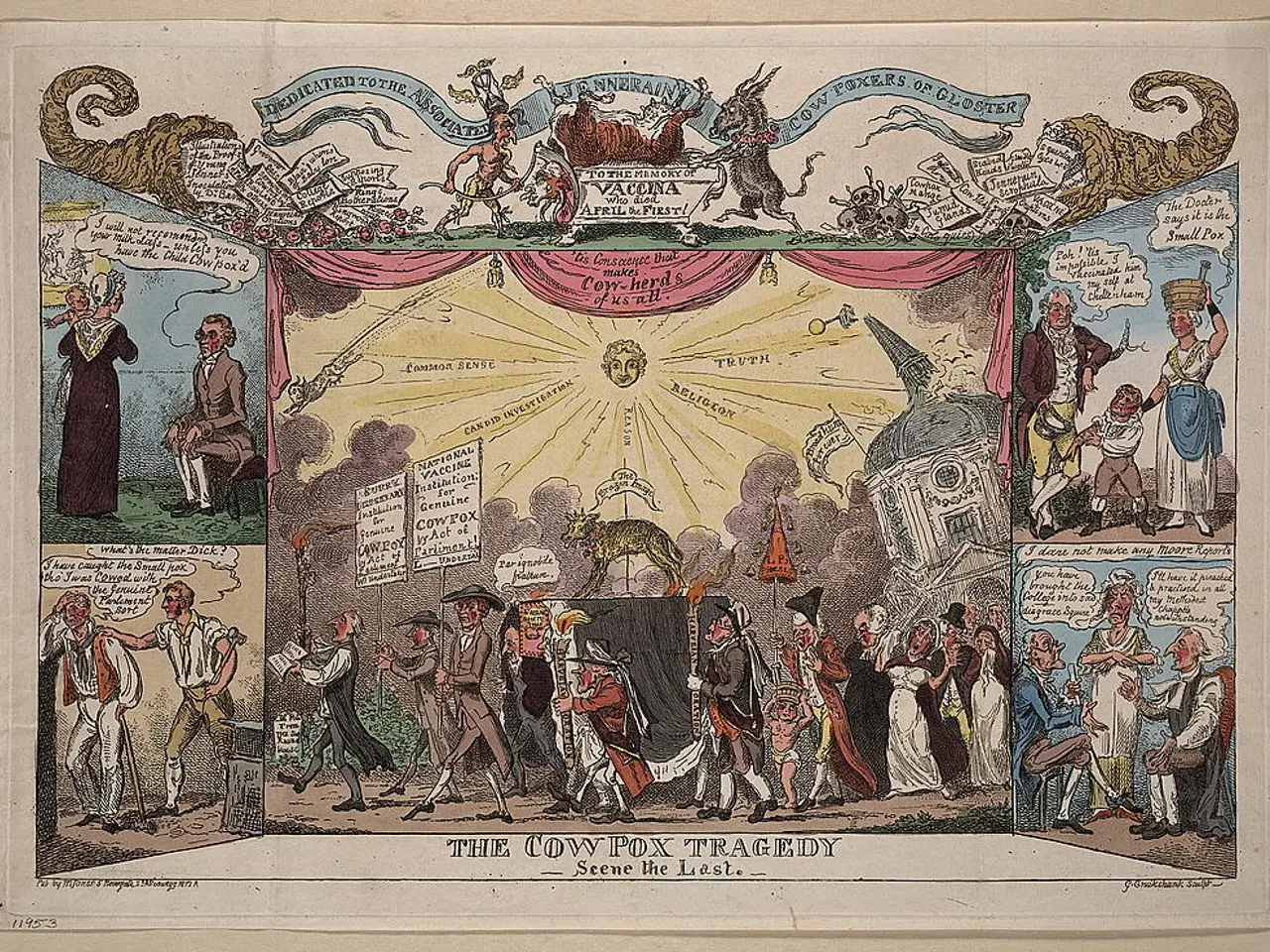Could a Growing Satanic Movement Truly Influence Political Decisions?
The Satanic Temple (TST), with its 17 chapters across the United States and Europe, claims an estimated 100,000 members and has been making waves in both the religious and political spheres. Recently, TST endorsed the film "The Witch" as part of a four-city tour called The Sabbat Cycle, which included screenings of the film followed by satanic rituals.
The political and religious significance of TST's collaborations lies in their use as forms of social activism and religious expression that challenge dominant Christian cultural norms and advocate for secularism, bodily autonomy, and social justice. TST's nontheistic Satanism rejects belief in a supernatural Satan, but uses the symbol of Satan as a representation of rebellion against arbitrary authority and religious dogma.
By staging provocative ritual events and cultural productions, TST highlights the pluralism of religious expression and critiques the privileged role of Christianity in public life. For example, TST's public rituals can be seen as reclaiming religious freedom for non-Christian faiths, thereby promoting the constitutional principle of separation of church and state.
The Sabbat Cycle, a series of satanic rituals performed by TST, represents this blend of artistic expression and political statement. These rituals function both as religious observances within TST's belief system and as performative protests against religious hegemony. In Austin, Texas, TST's spokeswoman Jex Blackmore interpreted "The Witch" as a depiction of a satanic revolution against patriarchal oppression.
TST's activism extends beyond film screenings and satanic rituals. They have launched campaigns demanding the same religious rights and privileges afforded to Christianity, such as creating satanic coloring books for distribution in schools, bidding to erect satanic "nativity scenes" on government property, offering prayers to Satan at a high school football game, and demanding a monument to Baphomet at the Oklahoma State Capitol.
TST has also invoked state RFRA laws in Michigan and Missouri to demand a religious exemption from laws dictating that those who seek an abortion need to review literature or endure a waiting period. Furthermore, TST's Tucson chapter has demanded to be included in public prayers offered before council meetings in Phoenix, with TST threatening to sue if not granted.
However, not everyone is convinced of TST's true viability. Millennials now outnumber baby boomers, but supporters remain skeptical of TST's long-term impact. TST sees itself as the heir to the "New Left" of the 1960s and aims to challenge the popular belief that America is a "Christian nation."
During the screening of "The Witch" at The Sidewinder in Austin, Texas, TST held a ritual featuring satanic American flags and a speech excerpt from a Baptist pastor. Blackmore delivered a "satanic jeremiad" warning of Christian theocrats taking over America and called for collaborators, not followers. This radical approach could potentially energize the forces it opposes, as conservative voices have used TST's presence as fodder for anti-abortion activists.
In conclusion, the collaborations of The Satanic Temple with film screenings and satanic rituals like The Sabbat Cycle have political significance in promoting secular, progressive activism against Christian conservative dominance and religious significance in establishing a pluralistic, symbolic Satanic identity centered on compassion, reason, and autonomy.
References:
[1] Berlet, C., & Lyons, M. (2018). Right-Wing Populism in America: Too Far Gone?. University of California Press.
[2] Sargent, C. (2018). The Satanic Temple: The Extraordinary Rise of the Most Satanic Temple in America. HarperOne.
The Satanic Temple's collaborations, such as film screenings and satanic rituals like The Sabbat Cycle, serve as a political statement advocating for secularism, progressive activism, and challenging Christian conservative dominance. Meanwhile, their religious rituals also establish a symbolic Satanic identity, promoting pluralism, compassion, reason, and autonomy.
The recent endorsement of "The Witch" as part of The Sabbat Cycle tour highlights their blend of artistic expression, religion, and political activism, often stirring controversy in the realm of general news.




